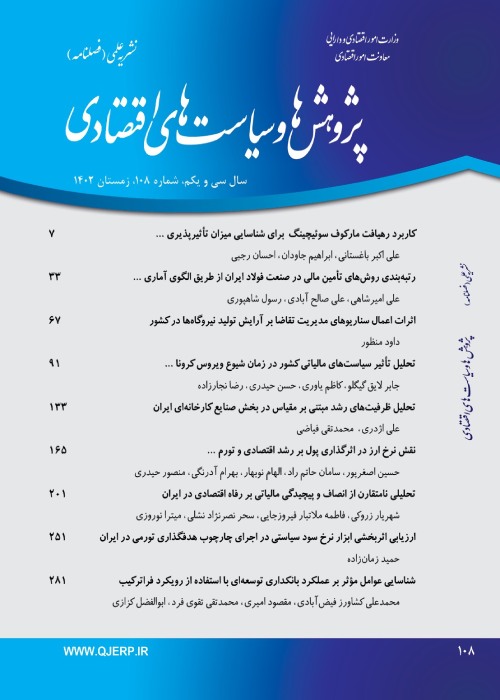Comparative Study of Energy and Environmental Efficiency in Developing Countries: Desirable and Undesirable Output Approach
Author(s):
Abstract:
This paper introduces a new approach to evaluating selected developing countries. In this study, we define two categories of outputs (desirable and undesirable) to measure the performance of the selected countries. Indeed, it is necessary to explore how to combine two separated efficiency measures in a unified structure. The conventional data envelopment analysis (DEA) may fail to identify decision-making units (DMUs) and as a result efficiency scores may not be meaningful, especially when the number of DMUs is insufficient. In this paper, a new approach is presented based on DEA and game theory to evaluate large-scale DMUs. For this purpose, the bargaining games as a cooperative game model are combined with the conventional DEA models. Moreover, DMUs do be are divided by different categories of measures in the competitive environment. The results show that China and Poland have conditions of maximum energy efficiency with using the integrated assessment model. Other countries have been qualified by a bargaining game, but they have not been a favorable outcome like as China and Poland.
Keywords:
Language:
Persian
Published:
Journal of Economic Research and Policies, Volume:25 Issue: 81, 2017
Pages:
85 to 121
magiran.com/p1717610
دانلود و مطالعه متن این مقاله با یکی از روشهای زیر امکان پذیر است:
اشتراک شخصی
با عضویت و پرداخت آنلاین حق اشتراک یکساله به مبلغ 1,390,000ريال میتوانید 70 عنوان مطلب دانلود کنید!
اشتراک سازمانی
به کتابخانه دانشگاه یا محل کار خود پیشنهاد کنید تا اشتراک سازمانی این پایگاه را برای دسترسی نامحدود همه کاربران به متن مطالب تهیه نمایند!
توجه!
- حق عضویت دریافتی صرف حمایت از نشریات عضو و نگهداری، تکمیل و توسعه مگیران میشود.
- پرداخت حق اشتراک و دانلود مقالات اجازه بازنشر آن در سایر رسانههای چاپی و دیجیتال را به کاربر نمیدهد.
In order to view content subscription is required
Personal subscription
Subscribe magiran.com for 70 € euros via PayPal and download 70 articles during a year.
Organization subscription
Please contact us to subscribe your university or library for unlimited access!


